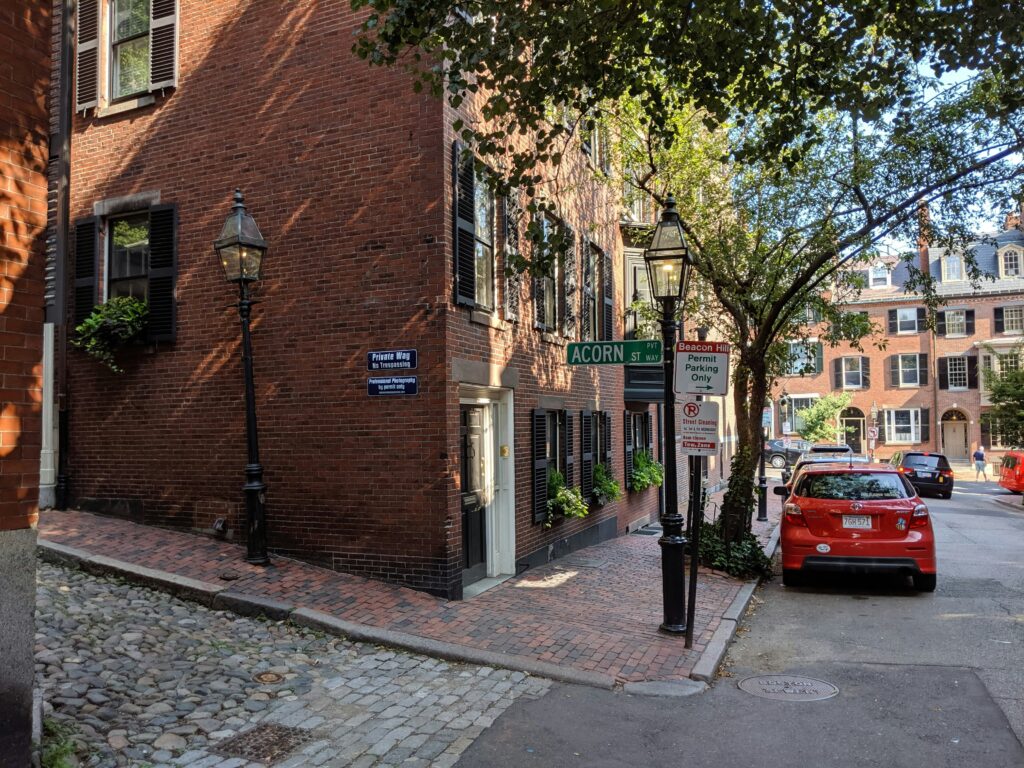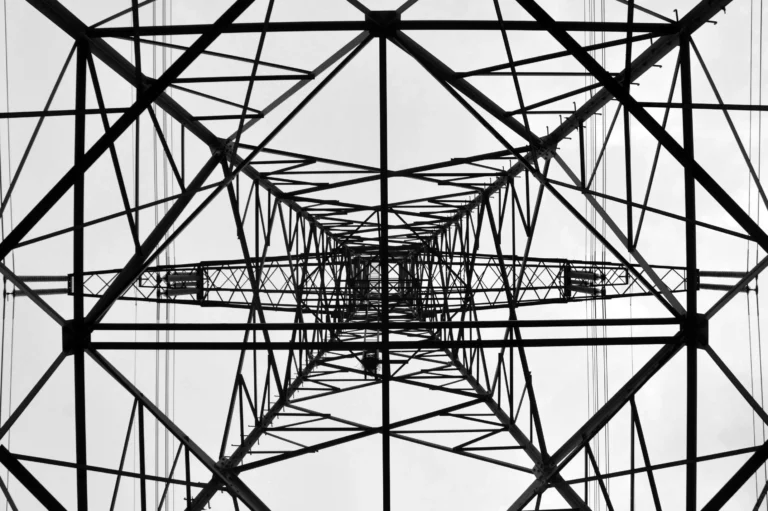MyHEAT
201-1228 Kensington Rd NW
Calgary, AB T2N 3P7
Canada
Massachusetts Energy Rebates & Incentives Guide
Gillian Ward
- Published
- Updated

As energy costs continue to rise, finding ways to reduce expenses by improving home efficiency has never been more important. To support this, Massachusetts offers a range of energy rebate programs designed to promote smarter energy use and lower household energy costs. On average, Massachusetts residents save $200-400 annually through these programs. These initiatives not only drive energy savings but also contribute to a greener environment.
Home energy programs offered through Mass Save® provide financial incentives for energy-efficient upgrades, making it easier to improve energy performance in homes. Whether you are considering insulation, air sealing, heating and cooling system upgrades, or solar energy, these rebates can significantly lower upfront costs.
This guide explores the various energy rebate options and their benefits in the state of Massachusetts, including application processes, and how to maximize savings through innovative energy efficiency programs like MyHEAT.
Key Takeaways
- Massachusetts offers many energy rebates for residential and commercial efficiency upgrades.
- A no-cost home or building energy assessment is a key requirement to unlock many of these rebates.
- Weatherization and insulation are heavily incentivized, with rebates covering up to 100% of the costs.
- MyHEAT provides free heat loss maps for National Grid customers in certain areas, helping them identify energy inefficiencies.
- Combining rebate programs with MyHEAT insights can lead to significant long-term energy savings.
What are Massachusetts Energy Rebates?
Massachusetts energy rebates are financial incentives aimed at promoting home energy efficiency. These rebates help homeowners and businesses make energy-efficient upgrades, reducing both energy usage and costs. By offering rebates, the state encourages the use of clean energy technologies and reduces reliance on fossil fuels.
One of the key programs offering these rebates is Mass Save®. This collaboration between Massachusetts’ utility companies and the state government provides various rebates and incentives for energy improvements. For example, through Mass Save®, you can get rebates for installing advanced power strips, air source heat pumps, or heat pump water heaters. These upgrades lower energy bills and greenhouse gas emissions.
In addition, a no-cost Home Energy Assessment is available to identify further energy-saving opportunities. National Grid and other energy providers participate in these initiatives, ensuring homeowners can access funds or rebates. Besides state programs, federal tax credits might also be available for certain energy-efficient home upgrades or construction projects.
Benefits of Massachusetts Energy Rebate Programs
1. Improved comfort in homes and buildings
Weatherization and insulation upgrades funded through Massachusetts energy rebate programs create a more comfortable living environment. By sealing gaps, eliminating drafts, and ensuring proper insulation, homes stay warmer in the winter and cooler in the summer. This leads to more consistent indoor temperatures, improved air quality, and reduced noise from outside. For older buildings, these improvements can dramatically enhance the overall living experience, making spaces more enjoyable year-round.
2. Environmental benefits
Energy-efficient upgrades contribute to a lower carbon footprint by reducing energy waste. Programs like Mass Save® encourage the adoption of eco-friendly systems, such as heat pumps and improved insulation, which require less energy to maintain desired indoor conditions. This reduction in energy consumption helps Massachusetts residents and businesses align with the state’s commitment to reducing greenhouse gas emissions and achieving net-zero energy goals.
3. Financial savings on energy-efficient upgrades
Massachusetts energy rebates significantly lower the cost of adopting energy-efficient systems. Programs like Mass Save® offer generous rebates, covering up to 100% of the cost for some weatherization and insulation projects. Other upgrades, such as heat pumps, qualify for rebates of up to $16,000 for income-eligible residents. These savings reduce upfront costs, making energy-efficient solutions accessible to more homeowners.
4. Long-term reductions in heating and cooling costs
Once upgrades are installed, homeowners benefit from lower energy bills over the long term. Proper insulation and high-efficiency systems reduce the energy needed to heat or cool a home, translating to substantial savings over time. For example, homeowners can save an average of 15% on heating and cooling costs by implementing insulation and air-sealing measures.
5. Tax credits and extended incentives
Tax credits for energy-efficient products are available for purchases made between January 1, 2023, and December 31, 2032. These federal incentives allow homeowners to claim up to 30% of the project costs for eligible improvements, including insulation, windows, and heat pumps. This creates an added financial incentive to upgrade homes and businesses with eco-friendly systems.
6. Access to cutting-edge systems with reduced costs
Through Mass Save®, Massachusetts homeowners can access rebates for advanced systems like whole-home air-sourced heat pumps, with amounts reaching up to $10,000. These systems not only provide heating and cooling but do so more efficiently than traditional HVAC setups. Rebates for other upgrades, including water heaters and smart thermostats, further expand the options for energy savings.
7. Supporting Massachusetts’ energy goals
By participating in rebate programs, residents contribute to the state’s long-term energy objectives. The Massachusetts Department of Energy Resources (DOER) manages programs like Mass Save® to build a sustainable energy future. These programs not only save residents money but also support broader efforts to reduce grid demand, increase energy independence, and create a cleaner environment for future generations.
Home Energy Assessments: The first step to rebates
Massachusetts offers an array of energy efficiency programs, primarily through the Mass Save® initiative. This program provides rebates, incentives, and resources to help residents and businesses lower energy demand and carbon emissions. To qualify for Mass Save® incentives, you must be a customer of a participating utility company and complete a no-cost Home Energy Assessment first.
As a home energy assessment is the first step to accessing most rebate programs in Massachusetts, here are a few key things to know:
What is a home energy assessment?
A home energy assessment is a professional evaluation of your home’s energy efficiency. It identifies areas where energy is being wasted, such as gaps in insulation, air leaks, and inefficient appliances. This process helps homeowners understand their energy usage and provides actionable recommendations to improve efficiency, reduce energy bills, and enhance overall comfort.
Many programs, like those offered through Mass Save®, require a home energy assessment as a first step to qualify for rebates and incentives.
Read more about home energy audits.
How long does a home energy assessment take?
Assessments typically take about an hour to complete, depending on the size of the home and the scope of the evaluation.
When should you book a home energy assessment?
Due to high demand, it’s recommended to book your home energy assessment as soon as possible. Wait times can extend to several weeks or even months, so acting quickly ensures you can start accessing rebates and making energy-efficient upgrades sooner.
MyHEAT and home energy assessments
MyHEAT complements assessments by providing a bird’s-eye view of your home’s heat loss. This platform, available to National Grid customers in select Massachusetts cities, helps homeowners visualize inefficiencies and connect to rebates for upgrades.
A home energy assessment is a crucial first step in improving your home’s energy efficiency in Massachusetts. It evaluates your home’s energy usage and identifies opportunities to save energy and reduce costs.
MyHEAT offers an innovative platform that enhances this process. Here’s how it helps:
- Heat Loss Visualization: Uses aerial thermal imaging to identify heat loss in your home, and how to reduce it.
- Comparison: Allows you to compare your home’s energy efficiency with others in your area.
- Identifies Available Energy Programs & Incentives: Links you to programs like National Grid’s no-cost Home Energy Assessment.
Steps to get started:
- Schedule a home energy assessment.
- Receive a detailed Home Energy Report.
- If available in your area, use MyHEAT to identify and visualize how your home is losing heat.
- Explore energy-efficient upgrades like higher r-value insulation, replacement windows, advanced power strips and air source heat pumps.
- Enjoy the benefits of lower energy bills, utility rebates, and a reduced carbon footprint by making energy-efficient upgrades.
Types of Rebates Available in Massachusetts
Massachusetts provides numerous energy rebates to encourage sustainable upgrades. From weatherization to energy storage, these incentives help homeowners reduce energy consumption and cost.
Massachusetts weatherization and insulation rebates
Mass Save® provides significant incentives for home weatherization and insulation improvements:
- Insulation upgrades Rebates cover 75% to 100% of the installation cost.
- No-cost air sealing Available to improve home energy efficiency.
These improvements can lower heating and cooling expenses by approximately 15%. Low-income households may qualify for the Weatherization Assistance Program, offering additional support. Eligibility typically requires a Home Energy Assessment. Additionally, the federal Energy Efficient Home Improvement Credit allows for a 30% reimbursement of project costs.
Massachusetts heating and cooling rebates
Mass Save® offers various rebates for heating and cooling system upgrades:
- Heat pump rebates Up to $16,000 for income-eligible partial-home heat pump installs (a combination of heat pump and existing boiler/furnace); otherwise up to $10,000.
- Air conditioning rebates $40 per ton for ENERGY STAR®-certified central units.
- Furnace and boiler rebates Rebates for fossil fuel heating systems were available until August 31, 2024. Applications had to be submitted by September 30, 2024.
- Water heater rebates $750 to $1500, depending on size and type.
- Thermostat rebates $25 to $100 for smart and programmable thermostats.
Note: Rebates for fossil fuel heating equipment concluded on August 31, 2024. Whole-home heat pump rebates now require decommissioning existing fossil fuel systems.
Massachusetts window replacement rebates
Mass Save® offers rebates for energy-efficient window replacements and savings of up to $75 per window.
Eligibility requires completing a no-cost Home Energy Assessment with a certified contractor. Participants must be utility customers in one- to four-unit homes.
Window replacements can increase home value, as well as reduce air drafts, and prevent UV damage to floors, carpets and furniture.
Massachusetts energy storage rebates
The ConnectedSolutions Program rewards customers for reducing peak energy demand, with potential earnings up to $1,375 annually for typical systems.
Additional incentives include the SMART Battery Adder and the federal Investment Tax Credit.
The Mass Save HEAT Loan offers financing options for battery storage installations.
How to Apply for Energy Rebates in Massachusetts
Applying for energy rebates in Massachusetts can lower your energy bills and make your home more energy-efficient. Here’s how you can take advantage of the rebates offered by the state:
1. Complete a Home Energy Assessment through Mass Save®
Start by scheduling a no-cost Home Energy Assessment with Mass Save®. An Energy Specialist will visit your home to assess energy usage and identify areas for improvement.
2. Use MyHEAT Maps to Spot Energy Loss
If available in your area, utilize MyHEAT maps to spot high-priority areas in your home that need upgrades. These maps can help pinpoint spots where energy is lost. Learn more about the National Grid Heat Loss Awareness Program in Massachusetts, and how to access your home’s Heat Loss Building Profile..
MyHEAT Heat Loss Building Profiles are available for free to National Grid customers in the following cities: Abington, Amesbury, Ayer, Beverly, Billerica, Boxford, Chelmsford, Clinton, Cohasset, Dracut, Dunstable, Essex, Everett, Gloucester, Hamilton, Harvard, Haverhill, Hingham, Ipswich, Lancaster, Leominster, Lowell, Lynn, Malden, Manchester, Medford, Melrose, Newbury, Newburyport, North Reading, Pepperell, Quincy, Reading, Revere, Rockland, Rockport, Rowley, Salem, Salisbury, Saugus, Shirley, Swampscott, Tewksbury, Topsfield, Tyngsborough, West Newbury, Westford, Wenham, Weymouth, Whitman, Wilmington, Winthrop.
3. Gather Documentation and Apply for Available Rebates
- Review eligibility requirements for rebates and incentives you might qualify for.
- Gather necessary documents like utility bills and proof of ownership.
- Fill out the rebate application form available from your utility company’s website.
4. Get Your Rebate Funds
Once you submit your application, approval may take a few weeks. Reimbursement timelines vary, but most applicants receive funds within two months of approval.
By following these steps, you can access energy-efficient upgrades and receive financial incentives for reducing energy usage.
What is the Mass Save® Program?
The Mass Save® Program provides substantial rebates for energy-efficient upgrades. Homeowners can receive up to $10,000 for whole-home air-sourced heat pump installations, $1500 for water heaters, and other incentives for a variety of other home energy upgrades.
To qualify, you must be a customer of a participating utility company and live in a one to four-unit home. The program is run by several utility companies across Massachusetts and focuses on lowering energy demand and cutting carbon emissions. This program supports the Massachusetts Department of Energy Resources’ goal of creating a clean, cost-effective energy future.
Residents can apply for these rebates directly through their utility company. Simply fill out the application, and once processed, you’ll receive your rebate payment.
Exploring the energyCENTS Program
The Commonwealth Energy Tool for Savings (energyCENTS) is a one-stop portal for energy-saving opportunities. Massachusetts residents, businesses, and institutions can access various rebates and financing options through this platform.
Features of energyCENTS:
- Connects users with incentives for electric vehicles, appliances, and solar energy systems.
- Provides access to home energy assessments.
- Guides users to the sponsor’s website for detailed information and application options.
Using energyCENTS makes it easy to find energy-saving programs and reduce your energy demand while exploring clean energy technologies
Maximize Energy Savings and Rebates in Massachusetts with MyHEAT
MyHEAT is a free service for National Grid customers in certain Massachusetts cities like Quincy, Lynn, and Hingham.
It helps visualize home heat loss through aerial thermal imaging. With MyHEAT, you get a personalized Heat Loss Map and a simple HEAT Rating, scored from 1 to 10. This service identifies where heat escapes from your roof, helping you make smart energy improvements.
Key Features:
- Heat Loss Maps: Spot areas of your home that are losing heat and resulting in energy loss.
- HEAT Rating: Compare your home’s heat loss with others.
How it Saves Energy:
- Identifies Opportunities: Find areas needing weatherization and insulation.
- Rebates and Incentives: Identify additional rebates and applicable incentives you might qualify for.
Getting Started:
- Visit the program launch page and log in with an access code provided to you by National Grid.
- Review your Heat Loss Map and HEAT Rating on the MyHEAT Building Profile for your building.
- Schedule a no-cost home energy assessment.
- Apply for Massachusetts energy rebates.
By pinpointing inefficiencies and accessing available rebates, MyHEAT helps reduce energy bills, improve home comfort, and support clean energy. It’s a smart step for any homeowner looking to save and go green.
Taking Advantage of Massachusetts Energy Rebates
Massachusetts offers great opportunities for residents to save on energy costs through various rebates and programs. The state’s dedication to energy efficiency ranks it among the top two in the nation. The Mass Save® program is a key resource, providing rebates for insulation, HVAC systems, and smart thermostats.
Residents can also benefit from zero-interest loans like HEAT Loans to finance these upgrades. To get started, the Massachusetts Department of Energy Efficiency provides both online and in-home assessments. These assessments highlight areas for improvement and guide residents toward effective solutions.
To summarize:
- Use energy assessments and MyHEAT heat loss maps to identify and implement improvements.
- Take advantage of Mass Save® rebates for energy-efficient upgrades.
- Consider zero-interest loans to help with initial costs.
By participating in these programs, Massachusetts residents can make smart energy-efficient choices that lower their utility bills and help reduce greenhouse gas emissions.
Frequently Asked Questions (FAQs) about Massachusetts Energy Rebates
What is a home energy assessment, and why do I need one?
A free evaluation of your home’s energy performance, required to access many rebates in Massachusetts.
How does MyHEAT work?
MyHEAT provides aerial heat maps showing energy loss from buildings, helping prioritize insulation and sealing projects.
Are there rebates for weatherization in Massachusetts?
Yes, Mass Save® offers rebates covering up to 75% of insulation costs and incentives for air sealing.
Can MyHEAT’s heat loss maps help reduce my energy bills?
Yes, by identifying areas of heat loss, MyHEAT enables homeowners to target upgrades, leading to significant energy savings.
Who can access MyHEAT in Massachusetts?
MyHEAT is available to National Grid clients in all of the following cities:
Whitman, Abington, Rockland, Weymouth, Cohasset, Hingham, Quincy, Winthrop, Swampscott, Everett, Saugus, Lynn, Malden, Revere, Medford, Melrose, Salem, Reading, Wilmington, Wenham, Rockport, Beverly, Manchester, North Reading, Topsfield, Essex, Rowley, Newbury, West Newbury, Haverhill, Newburyport, Tewksbury, Hamilton, Gloucester, Ipswich, Boxford, Amesbury, Salisbury, Clinton, Ayer, Shirley, Lancaster, Harvard, Leominster, Pepperell, Westford, Chelmsford, Billerica, Tyngsborough, Dunstable, Lowell, Dracut.


